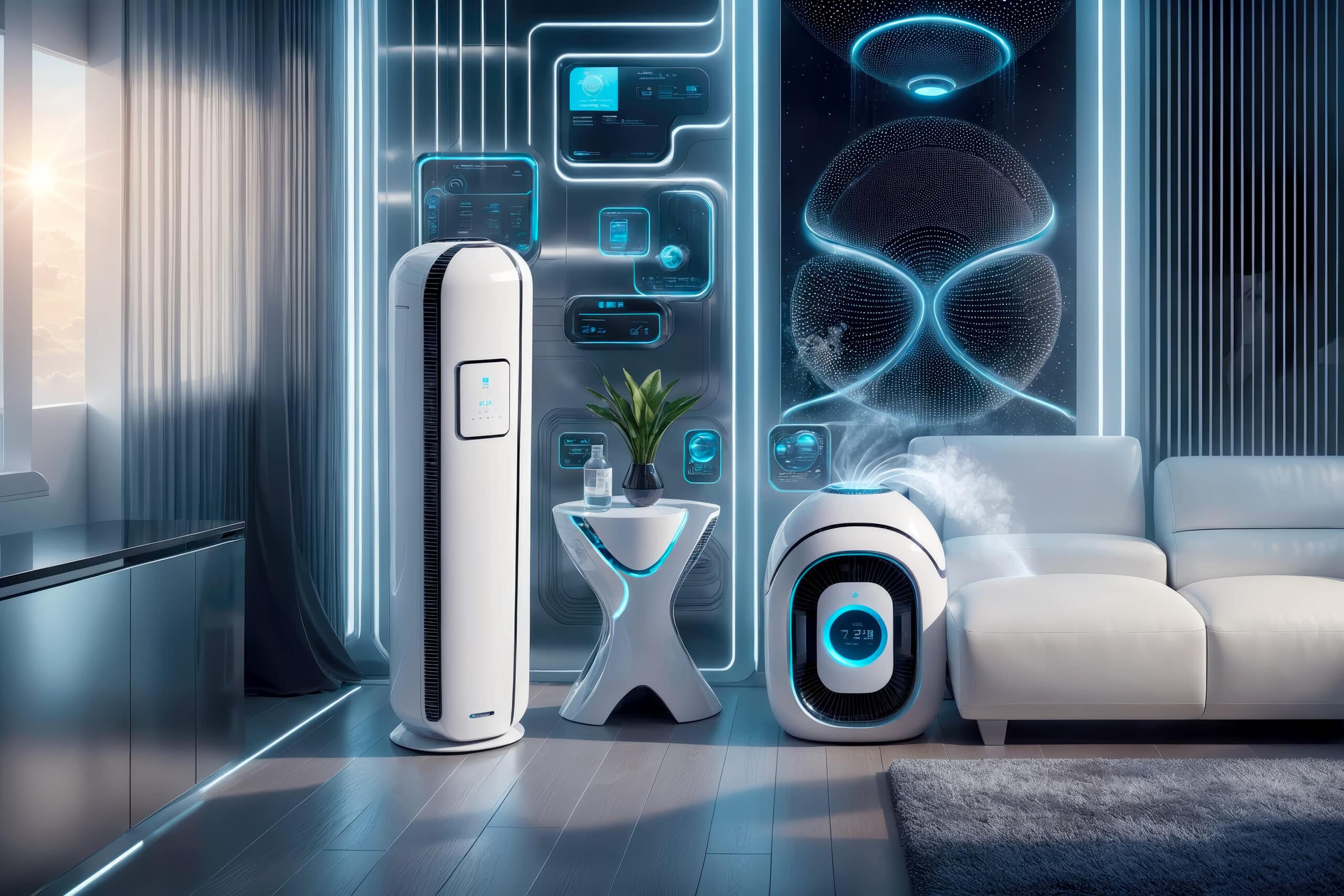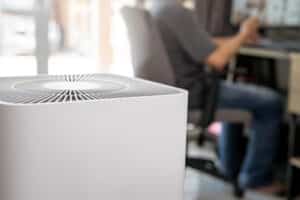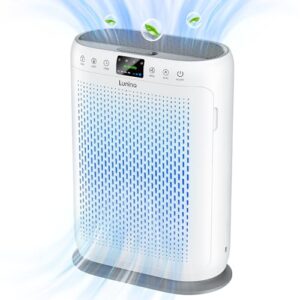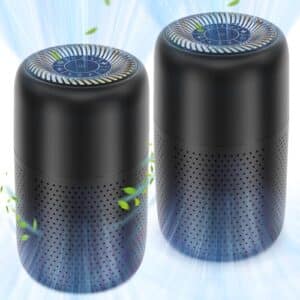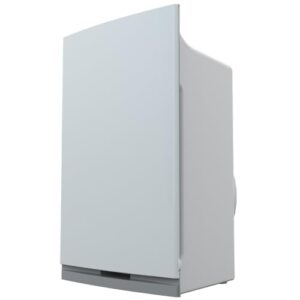Can Air Purifiers Improve the Overall Indoor Air Quality of My Home, Even in a Polluted Area?
Key Takeaways
- Air purifiers have been proven to effectively remove pollutants from indoor air, including fine particles, smoke, dust, pollen, mold spores, and germs.
- Air purifiers equipped with high-efficiency particulate air (HEPA) filters are effective in removing airborne particles, including allergens, bacteria, and viruses.
- Air purifiers can help mitigate the effects of outdoor pollution by filtering out pollutants and improving the overall air quality in your home.
Air pollution is a growing concern in many areas, and it can have detrimental effects on our health. Whether you live in a heavily polluted city or simply want to improve the air quality in your home, air purifiers are often recommended as a solution. But can air purifiers really make a difference and improve the overall indoor air quality of your home, even in a polluted area?
According to several credible sources, the answer is yes. Air purifiers have been proven to effectively remove pollutants from indoor air, including fine particles, smoke, dust, pollen, mold spores, and germs. They can significantly reduce the presence of these pollutants, thereby improving the air quality in your home.
The Effectiveness of Air Purifiers
Studies have shown that air purifiers, particularly those equipped with high-efficiency particulate air (HEPA) filters, are effective in removing airborne particles. HEPA filters can capture particles as small as 0.3 microns with an efficiency of 99.97%. This means that even microscopic pollutants like allergens, bacteria, and viruses can be effectively filtered out by air purifiers.
Furthermore, the Centers for Disease Control and Prevention (CDC) recommends the use of air purifiers with HEPA filters to reduce the spread of viral particles, including those responsible for respiratory illnesses like COVID-19. The use of air purifiers in healthcare settings has also been found to reduce the transmission of airborne infections.
Improving Air Quality in Polluted Areas
If you live in a polluted area, you may be exposed to high levels of outdoor air pollutants, such as vehicle emissions, industrial pollutants, and allergens. These pollutants can find their way into your home and impact your indoor air quality. Air purifiers can help mitigate the effects of outdoor pollution by filtering out these pollutants and creating a cleaner and healthier indoor environment.
According to a report by Healthline, air purifiers are effective in removing pollutants from indoor air, even in polluted areas. They can help reduce the levels of harmful particles and improve the overall air quality in your home. However, it is important to note that air purifiers may not be able to remove all pollutants, especially gases like volatile organic compounds (VOCs).
A study conducted by MIT found that consumer-grade air cleaners claiming to remove VOCs may be ineffective at VOC removal and can even be a source of VOCs themselves. The effectiveness of VOC removal varied among the products examined in the study. Therefore, if VOC removal is a priority for you, it is crucial to choose an air purifier that is specifically designed and tested for VOC removal.
Choosing the Right Air Purifier
When selecting an air purifier, it is important to consider several factors to ensure its effectiveness in improving indoor air quality. The Clean Air Delivery Rate (CADR) is a measure of an air purifier’s efficiency in removing pollutants from the air. A higher CADR indicates a faster and more effective purification process. It is recommended to choose an air purifier with a CADR matched for the size of the room you intend to use it in.
Additionally, look for air purifiers with HEPA filters, as they are known for their high efficiency in capturing particles. Some air purifiers also come with additional features like activated carbon filters, which can help remove odors and chemicals from the air.
The Limitations of Air Purifiers
While air purifiers can greatly improve indoor air quality, it is important to understand their limitations. Air purifiers are not a solution for all air quality problems, especially those related to outdoor pollutants. They are most effective in removing airborne particles and may not be able to address issues like high levels of outdoor gases or pollutants that have settled on surfaces.
It is also worth noting that air purifiers may require regular filter replacements or maintenance to ensure their continued effectiveness. The lifespan of filters can vary depending on the brand and usage, so it is important to follow the manufacturer’s recommendations.
Conclusion
Air purifiers can indeed improve the overall indoor air quality of your home, even in a polluted area. They can effectively filter out airborne particles, reduce the presence of pollutants, and create a cleaner and healthier environment. However, it is important to choose the right air purifier for your specific needs, considering factors such as CADR, filter efficiency, and the presence of additional features like activated carbon filters.
While air purifiers have their limitations and may not address all air quality issues, they can be a valuable tool in improving the air you breathe. If you live in a polluted area or are concerned about the quality of your indoor air, investing in a high-quality air purifier is a step towards creating a cleaner and healthier living environment.
Related Websites:
- Healthline – Do Air Purifiers Work?
- MIT News – Study Finds Indoor Air Cleaners Fall Short in Removing VOCs
- NPR – Can Air Purifiers Help Clean Indoor Pollution?
- Harvard Health – Air Pollution: How to Reduce Harm to Your Health
- Cleveland Clinic – Can Air Purifiers Improve Lung and Heart Health?
- The New York Times – The Best Air Purifier
FAQs:
Q: Can air purifiers improve the overall indoor air quality of my home, even in a polluted area?
Yes, air purifiers can significantly improve the overall indoor air quality of your home, even in a polluted area. They are designed to filter and remove various airborne particles, including odors. While they can’t completely eliminate all pollutants, they can significantly reduce their presence in the air.
Q: How do air purifiers work and what is their main purpose?
Air purifiers work by capturing and filtering out a range of pollutants from the air. Their main purpose is to improve indoor air quality by removing airborne particles, such as dust, allergens, pet dander, smoke, and volatile organic compounds (VOCs). They can also help eliminate unpleasant odors.
Q: Why are air purifiers particularly beneficial in polluted areas?
Air purifiers are particularly beneficial in polluted areas because they can combat outdoor pollutants that find their way indoors. They help create a cleaner and healthier indoor environment by removing pollutants from the air. However, it is important to use air purifiers in conjunction with other measures, such as keeping windows closed during high pollution days.
Q: What factors should I consider when choosing an air purifier?
When choosing an air purifier, consider selecting one with a high-efficiency particulate air (HEPA) filter or an activated carbon filter, as these are effective in removing odors and a wide range of pollutants. It is also important to consider the size of the purifier and the room it will be placed in to ensure optimal performance.
Q: Should I rely solely on an air purifier to address pollution in a polluted area?
While air purifiers can improve indoor air quality, it is recommended to use them in conjunction with other measures to address pollution in a polluted area. This can include keeping windows closed during high pollution days, maintaining proper ventilation, and minimizing the use of pollutants indoors, such as tobacco smoke and cooking fumes.

